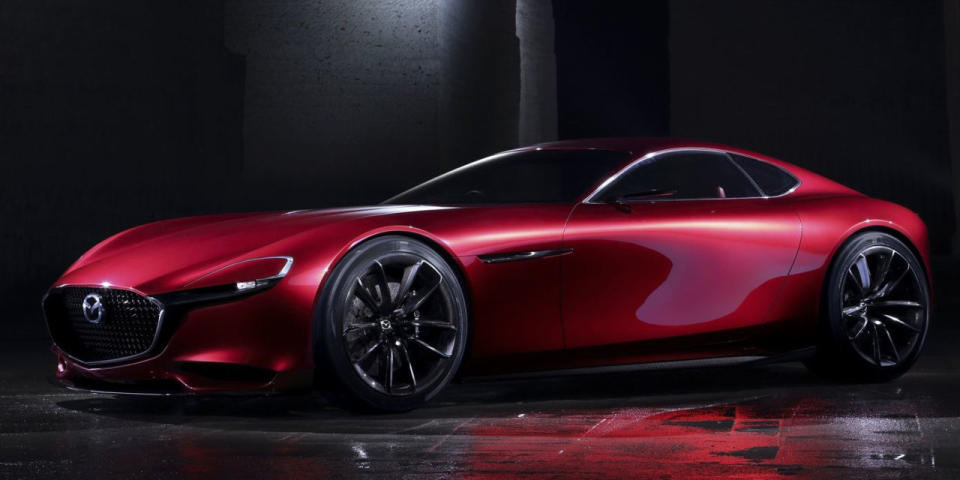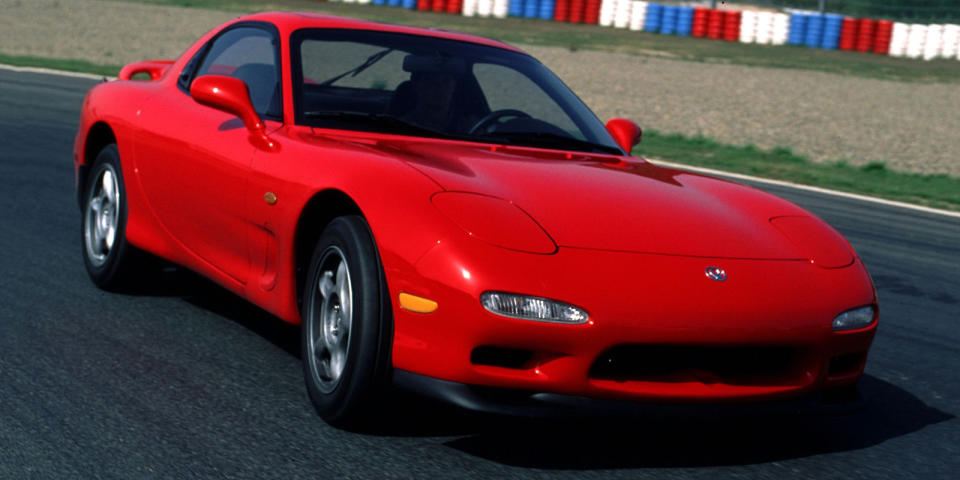Mazda CEO Kills Hope For a Rotary-Powered Sports Car

Ever since Mazda killed the RX-8 in 2012–and thus, the rotary-powered sports car–there's been a bevy of hopeful rumors that the company will build a successor. Mazda helped intensify those rumors when it showed off the RX-Vision concept car last year, but now, the company's CEO has killed hope for the RX-9.
In an interview with Automotive News, Mazda CEO Masamichi Kogai confirmed that the company has no plans to build a sports car larger than the Miata, effectively dashing hopes for the RX-9. Kogai isn't yet ready to declare the rotary dead, though.
"If we were to restart production of the rotary engine again, we need to make sure it wouldn't be just short-lived," said Kogai. "We need it to meet future emissions regulations. We are still conducting our R&D activity to overcome any issues we have with emissions and fuel efficiency."
Kogai says that the most likely application for the rotary would be as a range extender in an electric car. A rotary engine as the main power plant isn't entirely out of the question, but don't expect to see an electric sports car with a range extender.
"I think that as a sports car option, the MX-5 1.5-liter or 2.0-liter conventional engine, with its power and acceleration, might be a more exhilarating experience," said Kogai.

Mazda was one of the first automakers to invest heavily in rotary engines, but all but abandoned them because of their naturally high fuel and oil consumption. The automaker is working on a new turbocharged rotary, dubbed Skyactiv-R, but it's clear when (or if) this engine will reach production.
Mazda–like the rest of the automotive industry–has put priority on introducing hybrid and electric cars in the face of tightening emissions regulations. The company has entered a partnership with Toyota to develop electrified vehicles.
While it's disappointing to hear that the RX-9 is more-or-less dead, Mazda will still double down on building sporty cars, which is a very good thing. Mazda's vehicles are always sportier than their competitors, and Kogai says this pattern will continue. The company's new G-Vectoring Control, which varies torque output to improve handling, is evidence of this.
A rotary-powered sports car from Mazda would be great, but its development is unrealistic given the automaker's needs to invest in electrification. It's hard to be too disappointed though, when the sporty cars and, of course, the Miata still have a future at Mazda.
You Might Also Like

 Yahoo Autos
Yahoo Autos 